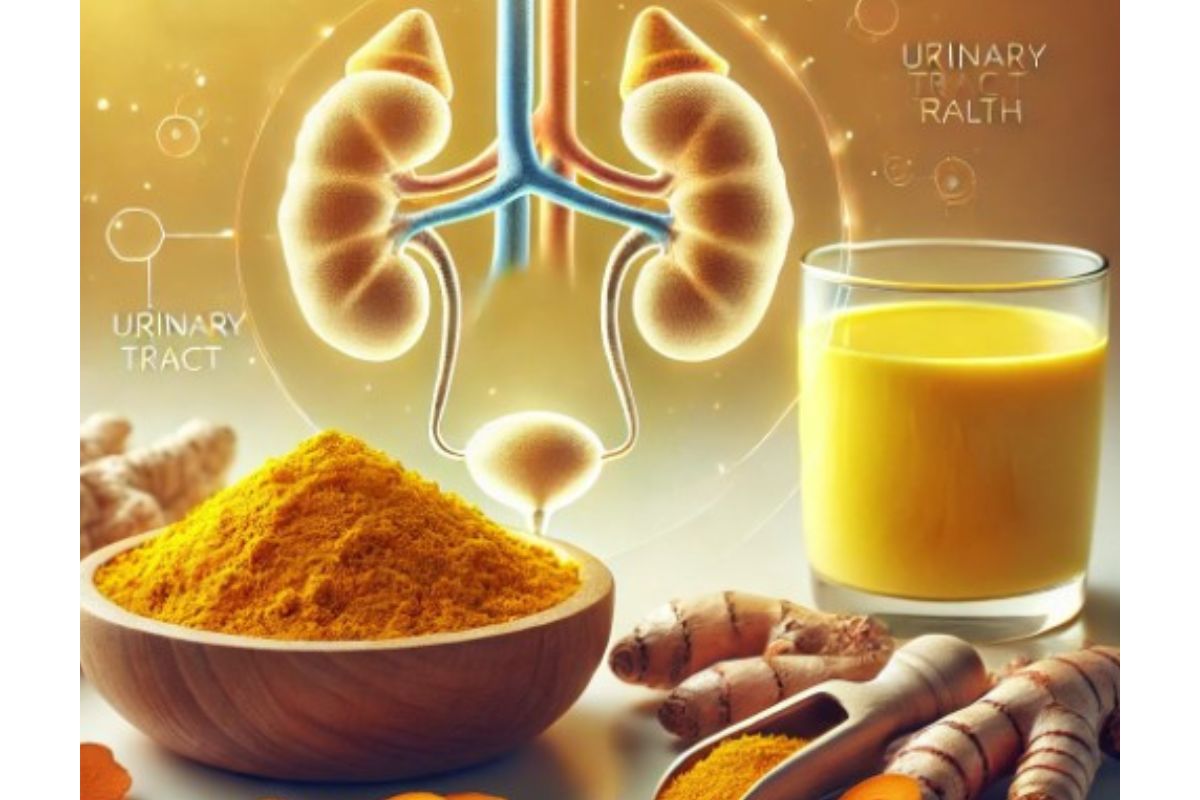
How Turmeric Can Relieve UTI Symptoms

Published January 25, 2025
Antibiotics are the standard treatment for urinary tract infections, but interest has grown in supportive nutrition and botanicals. Some lab and early studies explore turmeric/curcumin for antimicrobial and inflammatory pathways; results are preliminary and not definitive for treatment. Language in this article is kept cautious and non-prescriptive.
Turmeric for UTIs: A Quick Glance
Uncomplicated UTIs are common—especially in women. Classic symptoms include:
- Burning or pain with urination
- Increased urgency/frequency
- Strong-smelling or cloudy urine
- Occasional blood in urine

Could Turmeric Help With UTI Symptoms?
Turmeric’s key constituent, curcumin, is studied for:
1) Antimicrobial activity (primarily in lab models)
Test-tube research explores effects against several microbes, including E. coli and S. aureus. Lab results don’t automatically translate to clinical outcomes, so use this info as background only.
2) Inflammatory pathway modulation
Curcumin is widely investigated for pathways related to normal inflammatory responses. Whether this translates into noticeable UTI symptom changes varies by individual and isn’t a replacement for medical care.
3) General wellness routines
Many people enjoy turmeric in cooking or beverages as part of overall wellness. If you explore supplements, talk with your clinician—especially if you take medications or are pregnant.
About “Natural Treatment” Claims
You may read that “most mild UTIs can be treated naturally.” Evidence is mixed; delays in appropriate treatment may increase risks. Consider turmeric as a culinary/wellness ingredient, not a stand-alone cure.
Note on supplements: Avoid self-prescribing doses. If you’re considering turmeric/curcumin products, consult your clinician or pharmacist about interactions (e.g., blood thinners) and appropriate use.

Other Supportive Habits & Considerations
Hydration
Water remains the top beverage—aim for regular sips throughout the day when symptomatic, unless your clinician advises otherwise.
Commonly Discussed Botanicals & Foods (use cautiously)
Cranberry: May help reduce bacterial adhesion in some cases; mixed evidence for active infections—don’t delay care.
Garlic, green tea, uva ursi: You’ll find claims online, but human evidence is limited and some options (e.g., uva ursi) carry risks with improper use. Always consult a clinician; avoid high, chronic, or DIY “megadoses.”
Dietary Pattern
Nutrient-dense, fiber-rich foods and probiotics (e.g., yogurt, fermented vegetables) can support overall wellness alongside clinician-directed treatment.
Embrace a Balanced Approach
Turmeric can be part of a balanced lifestyle—mainly through food—while you follow medical guidance. Pair good hydration and healthy habits with professional care to address UTIs safely.
Power Up Your Routine With AMVital
Build simple, sustainable wellness habits. Explore our most-loved items here:

This Content Has Been Reviewed For Factual Accuracy
The information presented here has been meticulously checked by our internal experts. To learn more about our editorial process, you can click here.
{% render 'license-block' %}
About The Author
I'm Corinne Grace, a passionate writer for AMVital.com. I create articles based on sound scientific evidence to help you make healthy decisions. As a nurse, I've been on the front lines, seeing the critical importance of accurate information.
FAQs: Turmeric & UTI Symptoms
Q1. Can turmeric cure a UTI?
No. UTIs require clinician-directed care. Turmeric may be used as a dietary ingredient alongside medical guidance.
Q2. Is it safe to take turmeric supplements for UTIs?
Discuss with your clinician—turmeric/curcumin can interact with medicines (e.g., anticoagulants). Avoid self-dosing.
Q3. What’s the best way to include turmeric?
Food first (curries, golden milk). If considering supplements, get personalized advice.
Q4. What else helps during symptoms?
Hydration (unless contraindicated), timely medical care, and following your clinician’s plan.
Q5. When should I seek urgent care?
Fever, flank/back pain, blood in urine, pregnancy, symptoms >24–48 hours, or recurrent infections.
Written by the AMVital Team — sharing turmeric-powered skincare tips to help you glow naturally, every day.
Share


